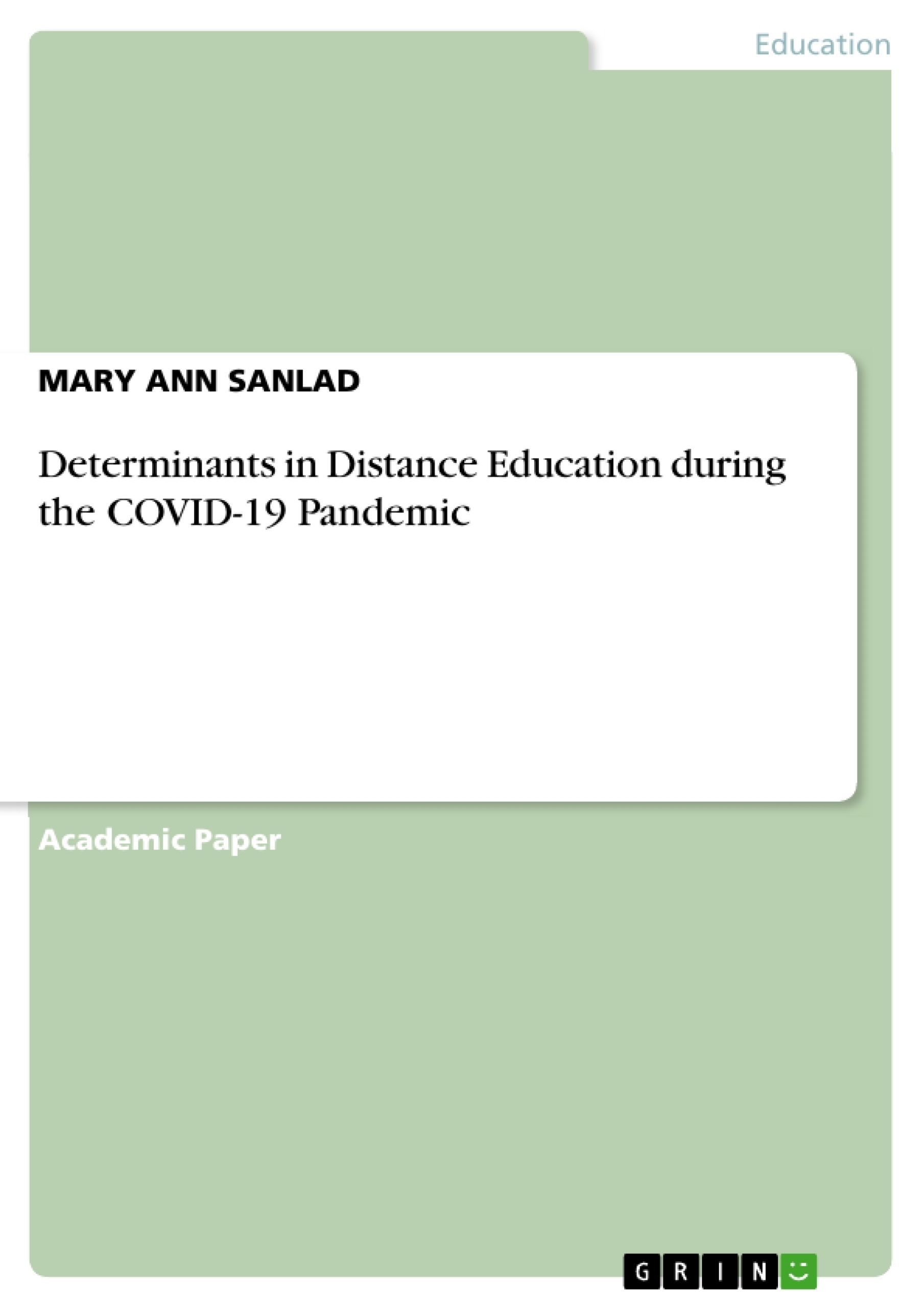This research determines the factors and determinants of distance learning education by elementary school teachers during the Covid-19 pandemic in a school of Mandaue City. Descriptive Method was used because it is used to obtain information concerning the current status of the problem to describe "what exists" with respect to variables or conditions in a situation. The methods involved range from the survey which describes the status quo, the correlation study which investigates the relationship between variables, to developmental studies which seek to determine changes over time. It will attempt to describe the distance learning support provided by the schools, problems encountered in distance learning education, and support needed in distance learning education.
Inhaltsverzeichnis (Table of Contents)
- INTRODUCTION
- Rationale
- Theoretical Background
- RESEARCH METHODOLOGY
- Design
- Environment
- Respondents
- Instruments
- Data Gathering Procedure
- Scoring Procedure
- Results
- DISCUSSION
- REFERENCES
Zielsetzung und Themenschwerpunkte (Objectives and Key Themes)
This study aims to investigate the experiences of elementary teachers in Mandaue City Central School with distance learning education during the COVID-19 pandemic. The study will explore the support provided by schools, challenges faced by teachers, and the support they need to thrive in this new educational environment.
- The impact of the COVID-19 pandemic on education
- The implementation and effectiveness of distance learning
- The challenges and supports for teachers in distance learning
- The need for training and adaptation in the face of a changing educational paradigm
- The role of government policies and guidelines in shaping distance learning practices
Zusammenfassung der Kapitel (Chapter Summaries)
- INTRODUCTION: This chapter introduces the study's context and rationale, highlighting the impact of the COVID-19 pandemic on education. It discusses the transition to distance learning in the Philippines and the importance of understanding teacher experiences in this new environment.
- THEORETICAL BACKGROUND: This chapter provides a theoretical foundation for the study, exploring key concepts related to distance education, particularly theories on self-determination, autonomy, interaction, and communication. It draws on relevant research and policies, including provisions of Republic Act 9155 and DepEd Orders 14 and 12, to establish a framework for understanding the study's context.
- RESEARCH METHODOLOGY: This chapter outlines the research design, environment, respondents, instruments, data gathering procedures, scoring procedure, and expected results of the study. It details the methods used to gather and analyze data about teacher experiences with distance learning during the COVID-19 pandemic.
Schlüsselwörter (Keywords)
Key terms and concepts explored in this study include distance education, COVID-19 pandemic, teacher experiences, support, challenges, online learning, educational policies, DepEd, Republic Act 9155, DepEd Orders 14 and 12, self-determination theory, autonomy, interaction, communication, and learning continuity.
Frequently Asked Questions
What are the main challenges for teachers in distance learning?
Teachers faced problems related to technological barriers, student engagement, and adapting traditional teaching methods to online platforms during the pandemic.
What support do schools provide for distance education?
The study describes support mechanisms such as digital resources, training guidelines, and administrative assistance provided by schools in Mandaue City.
Which theories are used to analyze teacher experiences?
The research draws on self-determination theory, focusing on autonomy, interaction, and communication as key factors for effective distance learning.
How did the COVID-19 pandemic change the educational paradigm?
It forced a rapid transition to online and modular learning, requiring teachers to develop new digital competencies and schools to implement learning continuity plans.
What is Republic Act 9155 in this context?
It is a Philippine law related to the governance of basic education, which provides the legal framework for how schools and the Department of Education (DepEd) manage learning during crises.
- Citation du texte
- MARY ANN SANLAD (Auteur), 2021, Determinants in Distance Education during the COVID-19 Pandemic, Munich, GRIN Verlag, https://www.grin.com/document/1138488



